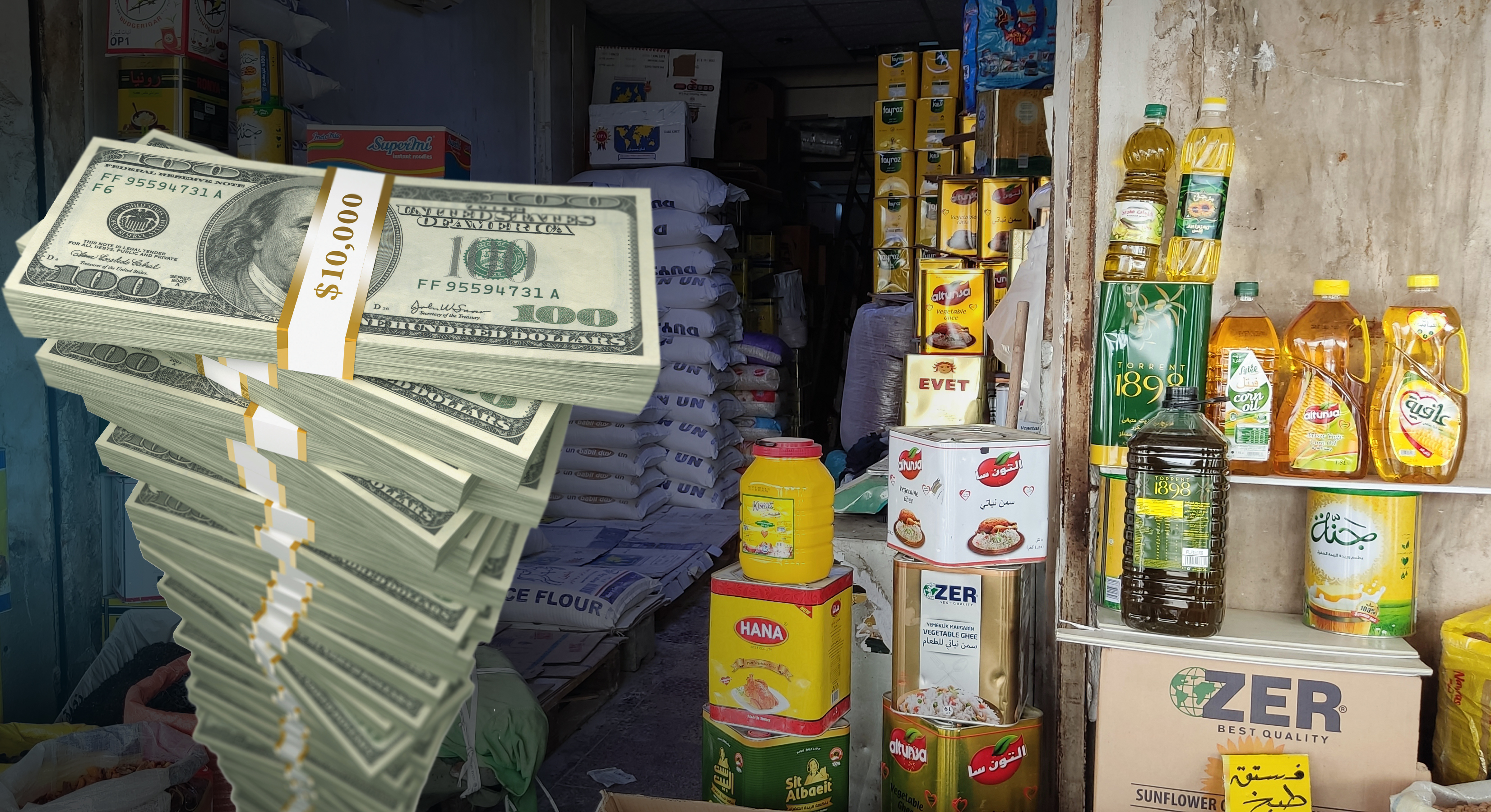The Border Ports Authority of Iraq has opened all border points for the import of foodstuffs due to the high demands following Russia invasion of Ukraine, while the Federal Court decided to postpone a case regarding exchange rate of Iraqi Dinar IQD to next month.
Markets in various Iraqi provinces, including Nineveh, Diyala, Salah al-Din and Kirkuk, witnessed an increase in food prices during the past ten days.
"The head of the authority, Major General Omar Al-Waeli, directed foodstuff imports be allowed to enter through the ports over a period of 24 hours, a directive to prevent price hikes," according to the Ports Authority press statement.
According to the market tours by KirkukNow network of correspondents in the disputed territories, there was an increase in food prices. In Kirkuk, some of the prices of foodstuffs have doubled, despite government measures of market and price censorship.
The price of a carton of oil containing 20 bottles of one liter was previously 48,000 Iraqi dinars IQD (USD33), but now it is sold for 80,000 IQD ($55) while a cartoon of 900ml oil, 20 packs, surged from 42,000 to 65,000.
A factory producing cooking oil for the Iraqi government who is distributing food baskets on monthly bases, is marketing one box of 20 bottles of 900ml has skyrocketed costs from 46,000 IQD to over 65,000.
Russian and Ukrainian cooking oil and flour are on demand in Iraq due to its quality and cost thus big quantities are imported and some factories import in bulk and package inside Iraq.
The Iraqi government allocates big budget for the ministry of trade to supply each Iraqi family with a proper food basket each month yet corruption has plagued this sector alike other public sectors in Iraq following ousting of Saddam Hussein regime in 2003.
Iraq depends mainly on oil revenues for national budget and spends the big part of it for payment of salaries for state employees and export of foodstuff as successive wars left the country devasted, in particular its industry.
To avoid severe budget deficits, the Iraqi government has dictated central bank of Iraq CBI based on recommendations by the ministry of finance o devaluate USD-IQD exchange rate from 1250 to 1450 in December 2020 for the budget of 2021, a matter frustrated the civil servants who lost 20% of their income accordingly.
Post Ukraine-Russia war, demands soared for foodstuff as Ukraine “Europe’s basket,” is no more able to meet international demands and keep its high level of production and export of foodstuff.
On Monday, March 14, 2022, the Federal Supreme Court said in a statement it has decided to postpone the case for raising the dollar exchange rate to April 4th.
The Federal Court had decided to summon the Minister of Finance and the Governor of the CBI in a special session regarding the exchange rate, and to seek the assistance of two economy advisers, Bassem Jamil and Abdul Rahman Najim.
Ali Al-Tamimi, a senior law consultant, considered that the high exchange rate violates the constitution and the charter of the International Covenant, while stressing the possibility of challenging it.
"The House of Representatives can return 2023 budget to the government for USD-IQD exchange rate at 1450 since it violates the Iraqi constitution and the Charter of the International Covenant."
"The devaluation violates articles 30 and 31 of the Iraqi constitution, which obligate the state to provide a free, dignified life and appropriate income,” Al-Tamimi said.
“The Central Bank Law by virtue of Law 56 of 2004 is an independent body under Article 3 of this law and also the instructions of the Central Bank of 2017, and therefore it has the right to determine the exchange rate, and if there is an increase in the price, it is necessary to control market prices and prevent inflation, which will increase poverty poorer,” Al-Tamimi added.





